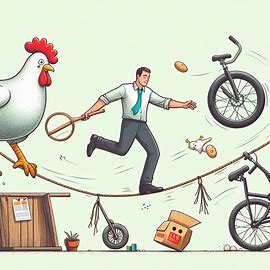Table of Contents
ToggleIntroduction
Discipline is the secret ingredient to unlocking your potential. While talent and ambition get you started, it’s discipline that keeps you going, transforming small, consistent efforts into lasting personal growth.
Without it, progress stalls, but with it, success becomes inevitable. Discipline is the cornerstone of personal growth. Many people aspire to improve their lives—whether it’s building healthier habits, advancing in their careers, or developing new skills—but they often overlook the importance of daily, consistent actions. Growth doesn’t come from grand gestures; it’s the result of small, repeated efforts over time. Without discipline, motivation fades, and progress stalls. Consistency in everyday actions is what transforms goals into reality. While many seek shortcuts, true development requires a steadfast commitment to doing the work, even when it’s challenging or mundane.
in This Article we shall dive deep into why discipline is crucial for personal growth and how it can be cultivated.
what is Discipline?
In the context of personal growth, discipline refers to the ability to consistently take actions aligned with your goals, even when motivation fades. It’s more than just willpower; it involves self-control, commitment, and building habits that support long-term success. Discipline ensures you stick to your plan, pushing through challenges and distractions, maintaining focus on progress, not instant gratification. It’s the foundation for achieving meaningful change over time by reinforcing steady effort, making it essential for personal and professional development.
Here are a few relatable examples of healthy habits like waking up early, exercising regularly, and developing good study habits:
Waking up early:
Maria decided to start waking up at 6 AM every day instead of sleeping in until 8 AM. By waking up early, she found extra time in the morning to have a calm breakfast, meditate, and plan her day. This helped her feel more in control and less rushed.
Exercising regularly:
John made a commitment to go for a 30-minute run every evening after work. Initially, it was difficult to stick with the routine, but after a couple of weeks, he started feeling more energized and noticed an improvement in his mood. The consistent exercise also helped him sleep better.
Developing good study habits:
Sarah struggled with last-minute cramming for exams, so she began scheduling one hour of study each day. She used a planner to break her subjects into manageable chunks and stayed consistent with daily reviews. Over time, this daily habit not only reduced her stress before exams but also helped her retain information much better.
The Role of Discipline in personal Growth
(1) foundation of success
Discipline is often considered the foundation of success because it enables consistent effort, focus, and persistence over time. Success in any field typically requires sustained work and overcoming obstacles, and discipline provides the self-control needed to stay on track, even when motivation wanes or challenges arise.
(2) cultivates good habits
Discipline plays a key role in personal growth by fostering the development of good habits. Consistent discipline helps you stay committed to your goals, leading to long-term self-improvement. By cultivating habits through discipline, such as regular exercise or time management, you develop a strong sense of self-control and focus, essential for personal growth.
(3) Discipline and motivation
Motivation is a temporary feeling that sparks action but can fade quickly, while discipline is the long-term habit that keeps you consistent even when motivation runs low. Unlike motivation, which fluctuates, discipline builds steady progress by focusing on daily habits and routines. When motivation fades, discipline ensures you keep pushing forward toward your goals.
Key Benefits of Discipline in Personal Growth
(1) Goal Achievement
Discipline plays a crucial role in setting and achieving both short-term and long-term goals. For short-term goals, discipline ensures consistent daily actions, helping you stay focused on small tasks that contribute to immediate success. By practicing time management and avoiding distractions, you can meet deadlines and improve productivity. Discipline promotes goal prioritization, allowing you to tackle urgent tasks effectively.
In the context of long-term goals, discipline fosters persistence, which is essential for overcoming obstacles and maintaining progress over extended periods. By building good habits and sticking to a structured plan, individuals can gradually work towards significant achievements, such as career growth, financial stability, or personal development. Maintaining discipline prevents burnout and helps you stay aligned with your vision, no matter how challenging the journey becomes.
(2) Improved Focus and Productivity
Discipline plays a critical role in reducing distractions and increasing focus on important tasks, which are essential for personal growth. By establishing consistent habits and routines, discipline helps eliminate time-wasting activities, such as excessive social media use or procrastination, that often divert attention. This leads to improved productivity and ensures that you stay on track with your goals.
With discipline, you can better prioritize tasks, manage time efficiently, and maintain mental clarity, all of which foster growth. Over time, this focused approach leads to greater success in achieving personal development and self-improvement milestones.
(3) Mental and Emotional Resilience
Discipline plays a critical role in strengthening character, particularly in the context of personal growth. It enables individuals to manage challenges, setbacks, and emotional obstacles more effectively by fostering resilience, consistency, and self-control.
Building Resilience: Discipline helps cultivate the mental toughness needed to face setbacks. When we encounter failures or emotional challenges, a disciplined mindset encourages us to persist, adapt, and recover more quickly.
Consistency: Personal growth requires sustained effort, and discipline is the foundation for maintaining habits that lead to long-term success. By staying consistent, even in the face of difficulties, we make incremental progress toward our goals.
Managing Emotions: Emotional discipline allows us to navigate emotional obstacles like frustration, disappointment, or anxiety. It strengthens our ability to remain calm, focused, and make thoughtful decisions under pressure.
Overcoming Setbacks: When facing setbacks, discipline ensures that we do not give up easily. Instead, we learn from the experience, develop a solution-oriented mindset, and push forward with renewed determination.
Incorporating discipline into daily life promotes personal growth by enabling us to manage challenges, setbacks, and emotional obstacles with a stronger sense of purpose and control.
Tips for Developing Discipline
(1) Start Small
To build the habit of discipline, it’s best to start with manageable tasks. For example, commit to just 10 minutes of exercise daily. This small, consistent effort makes the habit easier to stick to and creates a sense of achievement, which can motivate you to gradually increase the time or take on more challenging tasks. Starting small helps build momentum and reinforces the habit over time.
(2) Set Clear, Achievable Goals
to cultivate the art of Discipline it is important to set clear goals with actionable steps.
(3) Accountability
Accountability plays a key role in building discipline, especially when it comes to personal growth Here are a few tips on how to use accountability to enhance discipline:
Track Your Progress: Regularly measure and review your progress. Whether through journaling, checklists, or habit-tracking apps, seeing how far you’ve come (or where you’re slipping) keeps you motivated.
Create Accountability Partners: Share your goals with someone you trust. Having someone else to check in with can make you more likely to stay on track, as you won’t want to disappoint them or yourself.
Practice Self-Reflection: Regular self-assessments help you stay aware of your actions and decisions. Reflect on what went well and where improvements are needed.
Celebrate Small Wins: Acknowledge and reward yourself for sticking to your commitments, even for minor achievements. This positive reinforcement strengthens your discipline over time.
Conclusion
Discipline is a crucial pillar for personal growth, enabling individuals to stay committed to their goals and consistently take action. It fosters self-control, focus, and perseverance, helping people overcome obstacles and distractions. With discipline, you can cultivate habits that lead to success and personal improvement.
Personal growth is a journey, not a destination. It’s the small, steady steps that lead to transformation. Discipline is your compass on this path—it will guide you when motivation fades. Keep showing up, even on the tough days, because every effort you make brings you closer to becoming the person you aspire to be. Stay committed, trust the process, and remember that progress, no matter how slow, is still progress. You’ve got this!
Note:
we have a comment section below. At wholesomerelationship.com we value your comments and suggestion so dearly.






